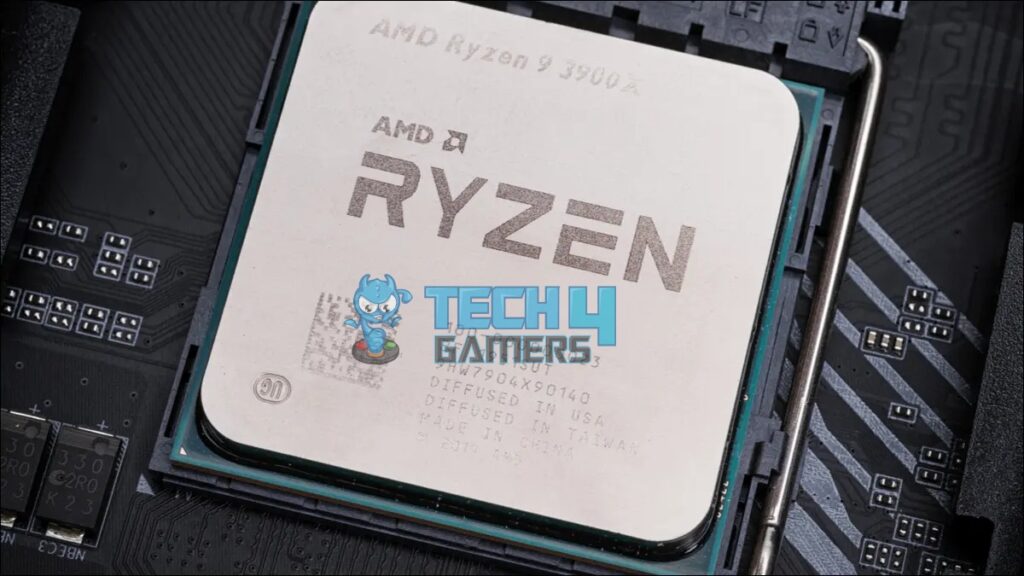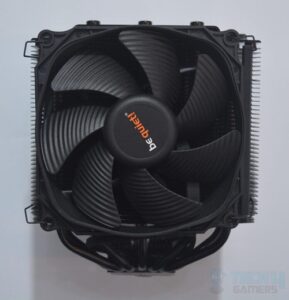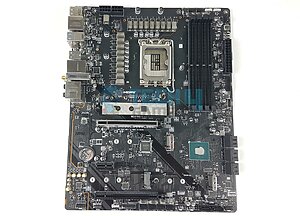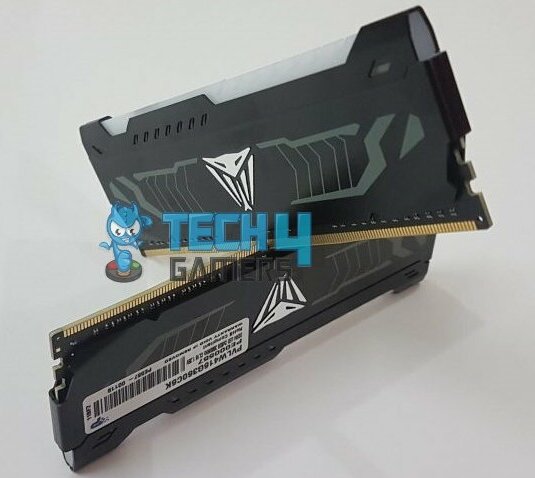Many common factors have a say in how long a gaming PC lasts, for example, environmental dust and moisture, overheating, and more. If dealt with carefully, a gaming PC can last 5 to 10 years, depending on its build and quality.[1]
Key Takeaways
- Low-end gaming PCs can last for 2 to 3 years, mid-end can survive for 5 years, and high-end gaming PCs can last for more than 7 years.
- Each component’s lifespan differs from the others, as a GPU might last 5 to 7 years, while motherboards can last up to 20 years if taken care of.
- Various factors affect the lifespan of the components, such as dust, excessive moisture, and overheating.
Here is a general overview of the lifespan of various categories of gaming PCs:
- Low-End Gaming PCs: These are the most basic type of gaming computers and have a 2 to 3-year lifespan.
- Mid-End Gaming PCs: They typically last 3 to 5 years, allowing you to perform various tasks and play more demanding games.
- High-End Gaming PCs: They have an average lifespan of 7 to 10 years. They offer top-notch specifications, providing an exceptional gaming experience.
- Pre-Built Gaming PCs: Pre-built gaming computers generally last around 4 to 5 years. The exact duration can vary depending on the specific specifications of your PC and the types of games you play.
Lifespan Of Gaming PC’s Parts
During my research, I learned that the lifespan of individual PC components also plays a crucial role in the longevity of a gaming PC.
Graphics Cards
The lifespan of a GPU typically ranges from 5 years with heavy use to potentially over 7 years with moderate usage. However, gaming with demanding applications can accelerate the ageing process, and the GPU may become outdated in 3 to 5 years. [2]

Processors
CPUs are durable components, and their lifespan can extend to 7 to 10 years or even more with proper care. Factors such as usage, heat, number of cores, and the functioning of essential parts like the hard drive and power supply can influence the CPU’s longevity.[3] While some apps and games might require more powerful CPUs, upgrading every 3 to 4 years may be sufficient for most users due to the continual advancements in processor technology.

CPU Coolers
CPU coolers that work on liquid cooling are built to endure a lot and are entirely sealed, eliminating the need to replace the liquid coolant. Before requiring any significant maintenance or replacement, an AIO cooler should last for about 5 to 6 years.
On the other hand, air coolers last forever unless the base plate does not catch rust. Since a CPU cooler’s heatsink is merely a piece of metal that doesn’t need to process anything, it should endure for several years.[4]

Motherboards
Maintaining proper care and cleanliness can significantly contribute to a motherboard’s lifespan. Regular cleaning, monitoring for potential issues, and ensuring a stable power supply are essential practices for extending the longevity of your motherboard up to 10 years.[5]

RAM
Coming to the RAM, they easily last about a decade. Furthermore, HDDs can last 3 to 5 years,[6] while SSDs typically have a minimum lifespan of 10 years, so choose a RAM compatible with your gaming needs.

Factors Affecting Its Lifespan And How To Tackle Them
To take care of my gaming PC, I regularly clean it every 3 months for dust buildup. Similarly, there are other aspects you need to be careful about that can harm a gaming PC.
- Dust: Regularly cleaning your computer’s internal components, such as the motherboard, PC fans, and CPU, especially addressing dust buildup, ultimately affecting its overall condition.[7] If you are new, I recommend that you practice cleaning off dust in the PC building simulator before tackling the process to avoid mistakes. I use compressed air for an effective cleaning, but you can proceed without it if it is inaccessible.[8]
- Excessive Moisture: High humidity in the environment can also impact the PC’s build and its components. Hence, be careful to place your PC in a dry environment, away from excessive moisture, or use desiccant packs to absorb moisture.[9]
- Overheating: High-end, CPU-intensive gaming burdens the PC and its components due to the high power requirements. As a result, components like CPU and GPU tend to overheat. If not tackled, it can greatly reduce the PC’s lifespan. Therefore, taking the necessary steps to lower CPU and GPU temperatures is important. Additionally, you need to allow air to safely enter and exit the PC case to keep your PC cool effectively by air cooling through fans.
- A Fragmented Hard Drive: If you’ve had your PC for a few years, I advise that you defragment your hard drive. Defragmentation helps organize and optimize file storage, improving overall system performance.
Lastly, I would say that the lifespan of a gaming PC entirely depends on your usage intensity and how well you care for it. With mid-level gaming of around 4 to 5 hours per day, my gaming PC has worked well for the past four years without needing major replacements. Although, if you use it for longer hours, the situation may be different.
More Resources By Tech4Gamers:
- How to Build a Gaming PC In 2023: The Definitive Guide
- How Many Watts Does A Gaming PC Use?
- How Much Does A PC Weigh? [Gaming PC Weight]
- How Much Does It Cost To Build A PC: Gaming & Budget
- How To Choose The Right Graphics Card For Your PC?
References:
-
VIBOX. HOW MANY YEARS WILL A GAMING PC LAST? Retrieved from https://vibox.co.uk/blog/how-many-years-will-a-gaming-pc-last
-
Softwareg.com. How Long Does A Graphics Card Last. Retrieved from https://softwareg.com.au/blogs/computer-hardware/how-long-does-a-graphics-card-last#:~:text=Average%20lifespan%20of%20a%20graphics,lifespan%20of%20a%20graphics%20card.
-
What is the impact of the number of cores on processor performance? Retrieved from https://www.linkedin.com/advice/0/what-impact-number-cores-processor-performance-ssnae#:~:text=The%20number%20of%20cores%20in,tasks%20and%20enhancing%20multitasking%20capabilities.
-
Radian Technologies. What is a Heatsink? Retrieved from https://radianheatsinks.com/heatsink/
-
Alt Gov. How Long Do Motherboards Last? Retrieved from https://altgov2.org/how-long-do-motherboards-last/
-
afrosampas.org. How Long Do Hard Drives Last? Lifespan and Signs of Failure. Retrieved from https://afrosampas.org/Do-Hard-Drives-Last-Lifespan-and-Signs-of-Failure-3733454.html
-
Academia.edu. Maintenance Of Computers. Retrieved from https://www.academia.edu/4768558/Maintenance_of_Computer
-
UNIVERSITY of WISCONSIN–MADISON. How to clean your computer & tech gear. Retrieved from https://it.wisc.edu/news/how-to-clean-your-computer/
-
Ubuntu Forums. Any Idea For dehumidifying a garage PC? Retrieved from https://ubuntuforums.org/showthread.php?t=1091481
Thank you! Please share your positive feedback. 🔋
How could we improve this post? Please Help us. 😔
Feedback By:
[Wiki Editor]
Ali Rashid Khan is an avid gamer, hardware enthusiast, photographer, and devoted litterateur with a period of experience spanning more than 14 years. Sporting a specialization with regards to the latest tech in flagship phones, gaming laptops, and top-of-the-line PCs, Ali is known for consistently presenting the most detailed objective perspective on all types of gaming products, ranging from the Best Motherboards, CPU Coolers, RAM kits, GPUs, and PSUs amongst numerous other peripherals. When he’s not busy writing, you’ll find Ali meddling with mechanical keyboards, indulging in vehicular racing, or professionally competing worldwide with fellow mind-sport athletes in Scrabble. Currently speaking, Ali’s about to complete his Bachelor’s in Business Administration from Bahria University Karachi Campus.
Get In Touch: alirashid@tech4gamers.com


 Threads
Threads

![Thermal Throttling Explained [CPUs And GPUs]](https://tech4gamers.com/wp-content/uploads/2023/05/Thermal-Throttling-218x150.jpg)

![How Much Is My PC Worth? [Valuation Guide]](https://tech4gamers.com/wp-content/uploads/2022/10/Error-Fixes7-218x150.jpg)